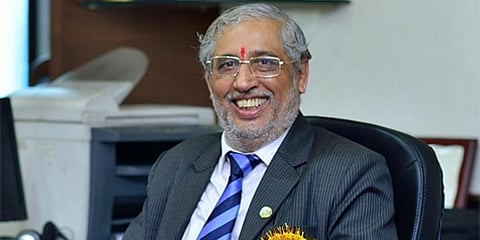

AICTE’s decision to let students who do not take up Maths, Physics, Chemistry or Biology apply for engineering courses is not meant to dilute the course but to make it more inclusive, said AICTE Chairman Dr Anil Sahasrabudhe while speaking at TNIE's ThinkEdu Conclave 2021.
He was discussing the NEP, the educational reforms and the way to an Aatmanirbhar Bharat with CSIR's Director-General Dr Shekhar C Mande and Padma Shri awardee Chamu Krishna Shastry from the Samskrit Promotion Foundation.
Dr Sahasrabudhe said that there are lots of misgivings that have been created by some of the media houses as though Maths and other Science subjects are not required to study engineering but it's not so.
"We have just opened up the window to those who have probably not taken one of these subjects because they come from a remote location - it might be that only Arts subjects are available for Class 11 and 12 in that region. They might have had Science but no Chemistry teacher. Such students should not be left out - that was our idea," said the AICTE Chairman.
Talking about the state of research during COVID, Dr Mande said that working closely with the industry helped them maintain the level of funds during the pandemic.
"While the entire world went through an economic crisis, we did not feel the shortfall in funding as much as the private funding filled the gaps wherever there was less public funding. Paying the fellowships on time has been a challenge but we are working towards that," he said.
Talking about the integration of Indian knowledge, Shastry said that the Indian Knowledge Systems has already become functional.
"A Indian Knowledge Systems (IKS) division has been created in the Ministry and has been housed at the AICTE headquarters. Already, around 1,000 researchers have associated with the cell and several verticals have been associated with it - environment, social science, science and technology, and institutions and individual interested to conduct their research at the IKS are being coordinated. The IKS is collecting the information in the public domain. We are also trying to integrate the IKS with the school curriculum," said Shastry.